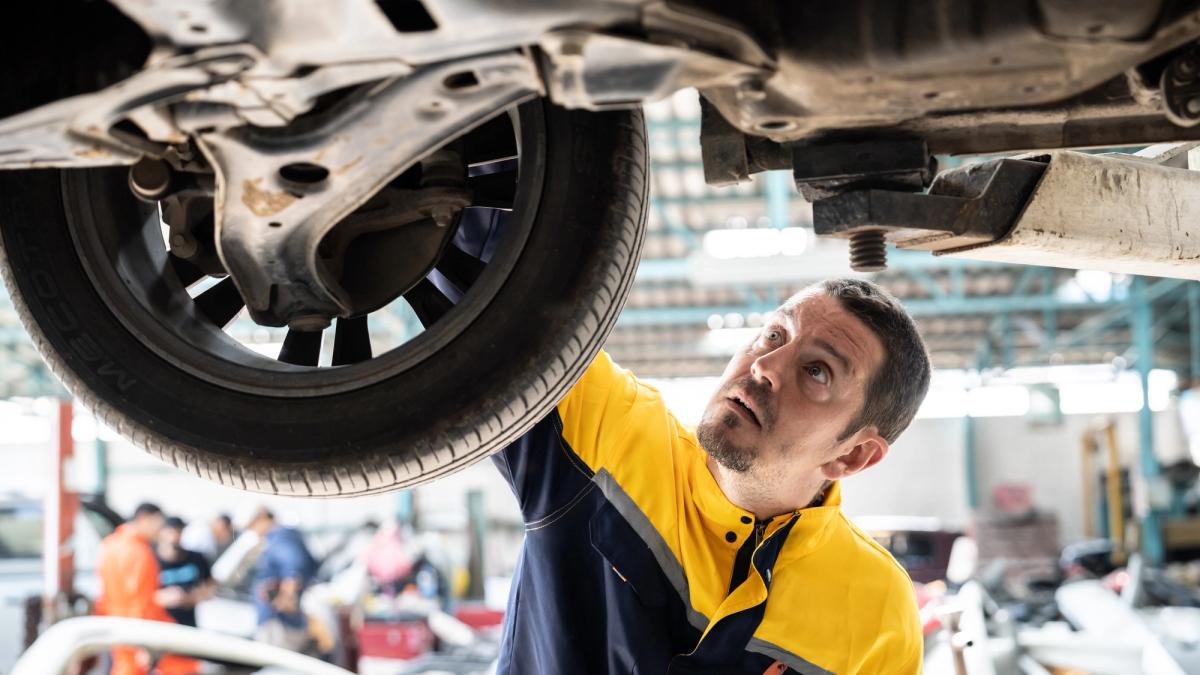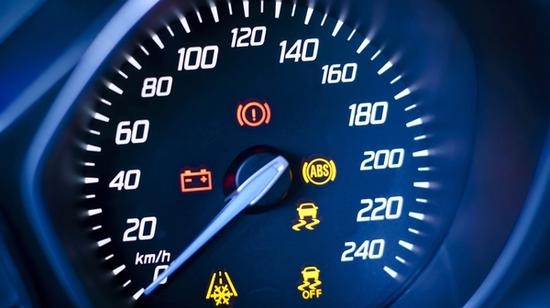What do the sounds from your car mean?

Does your car make noise when you turn? Can you hear the tyres humming while driving? Has your car suddenly started making a new rattling noise that it didn't make before? Hearing a new, unfamiliar noise from your car can be startling, but it doesn't necessarily mean an expensive trip to the workshop.
Cars are complex machines, with thousands of parts constantly working together to ensure optimal performance. Because many parts are constantly moving, certain sounds are normal - but unfortunately, every now and then a new sound appears that has never been heard before.
In such a situation, it is normal to get worried (and frustrated) when you hear an unexpected noise coming from your car. In most cases, this means that the car needs to be checked by a mechanic. Sometimes it's a minor problem that can be easily fixed, but other times the noise can mean you have to reach deeper into your pocket for major repairs.
We've put together a list of the most common car noises, what they can mean and what you should do about it.
The most common abnormal noises from cars
Here's a list of some of the most common car noises and what they might mean:
- The engine squeaks when it's running.
- Rattling when braking.
- The sound of windscreen wipers when you use them.
- Squealing and rattling when braking.
- Tire or engine noises while driving.
- Engine knocking.
- Noise or rattle when turning.
The engine squeaks when it's running
If the engine makes a loud squeaking noise when the car is running, it usually means that the belt in the engine compartment is worn or loose.
The noise can also be caused by one of the pulleys that the belt is using being in the wrong position. This noise also changes with engine speed, and sometimes it may disappear as the engine warms up. Nevertheless, the fault should not be ignored.
In most cases, repairing a squeaky belt is not a major operation, but it does require a visit to a workshop. Professionals will check what is causing the problem and either replace the belt or adjust the current one so that it no longer squeaks.
If you continue to drive with this problem for a long time, you risk further damage, especially if the water pump or charger belt is not adjusted correctly.
Brakes rattle
A distinct rattle when you press the brake pedal usually indicates that something is loose in the wheels or brakes.
It could be a brake caliper that is not properly secured - or something as simple as poorly tightened wheel bolts.
If you hear this noise, stop as soon as possible. Check that all wheel bolts are properly tightened. If this is possible, or if the problem persists, call Viking on 0100 2424. Our roadside assistance service will help you sort out the problem and, if necessary, transport the car to the nearest workshop.
Windscreen wipers make noise
If your windscreen wipers squeak when you use them, it's probably time to replace them. The squeaking is probably due to the wipers' dried rubber, making it difficult for them to conform to the shape of the windscreen. The result is windscreen wipers that squeak and wipe the windscreen badly, which in the worst case can compromise driving safety.
Remember that windscreen wipers should be replaced at least once a year. The good news is that replacing them yourself is easier than you think.
If you've replaced the wipers but still hear a squeak, try adjusting the angle of the wiper blade. If the wiper blade is at the wrong angle to the windscreen, this can cause the wipers to make an unpleasant noise. In most cases, you can turn the wiper blade rubber so that it is about 90 degrees to the windscreen.
Brake squeal and rattle
Most brake pads have a wear indicator, and on older brakes this was a mechanical solution, where when braking the metal would touch the brake disc causing a squealing sound. Both indicate that it is time to replace the brake pads.
Most modern cars have an electronic wear detector which warns you with a dashboard light when the pads need replacing.
Brake squeal can also be caused by dirt or gravel stuck between the brake discs and the brake pads. It is important to check your brakes as soon as possible if they start to make a noise.
If nothing is done about the squealing of the brakes or if there is a problem with the warning system, the brake pads may wear out completely. This will significantly reduce braking performance and the car should not be driven in this condition. You will hear a very distinct scraping sound when you press the brake pedal and the brake pads are completely worn out.
If this happens, the car should be towed to a workshop to have the brake pads replaced as soon as possible. Not only are the brakes much weaker than usual, but you will also damage the brake discs by continuing to drive, making the repair more expensive.
Many safety systems, such as ABS and ESP, rely on the brakes to work and will not function optimally if the brakes are worn.
Sounds from the tyres or engine while driving
Do you hear noise from the tyres or engine while driving? Rattling noises can indicate a number of problems. To find out whether the noise is coming from the tyres or the engine, press the clutch or shift into neutral while driving in a safe place. If the noise changes with engine speed, it's probably coming from the engine. It could be a malfunction of the pulley or a similar part, which should be checked by a workshop.
If the noise does not change with engine speed but follows the speed of the tyres, there is probably something wrong with the tyres or suspension.
The noise could also mean that something is stuck in the brakes, or a wheel bearing could be worn. If the noise gets louder when turning, the wheel bearing is probably the problem. In this case, it will probably need to be checked and replaced by a workshop.
If the noise is persistent, try braking hard a few times. If a stone or similar object is stuck between the brake pads and the brake disc, it will often come loose after a few stops.
Engine knocking
If you hear an unusual clicking noise from the engine, which varies depending on the engine speed, you should definitely have your car checked by a garage as soon as possible.
The clicking sound indicates that something is wrong inside the engine and it is difficult to find the problem without the right tools. In the worst case, the engine's creaking sound can be a sign of a fault that can cause serious damage to pistons or other parts relatively quickly. The best course of action is to tow your car to a garage with a towing service.
Mechanical problems with the engine can often be caused by too little or the wrong kind of oil. It is therefore important to check the oil regularly and only use the right kind of oil.
The engine makes a louder noise than usual
If you notice that your car engine is making a louder noise than usual, but otherwise sounds normal, there may be something wrong with the exhaust system. The exhaust pipe helps to reduce the noise of the car, and a hole in the exhaust system can make the engine sound much louder than usual.
If you hold something above the exhaust pipe, you can quickly hear if the exhaust is venting somewhere else under the car - and locate the hole. A hole in the exhaust pipe should be repaired as soon as possible, but you can safely drive the car to a garage.
Sound or rattle when turning
Does your car make noise when turning? A sound that is only heard when turning indicates that there is something wrong with the suspension. It could be a wheel bearing that is starting to give way.
If you hear a banging noise from the other side when turning, you should check the drive joints and other parts of the transmission and suspension. If you turn the steering wheel fully to one side while the car is stationary and look behind the wheel, you can check that the rubber seal around the driveshaft is intact.
If it is damaged, moisture and dirt will get in and the driveshaft will quickly deteriorate. It is usually safe to drive the car to a garage with this problem, as long as the car otherwise behaves normally.
